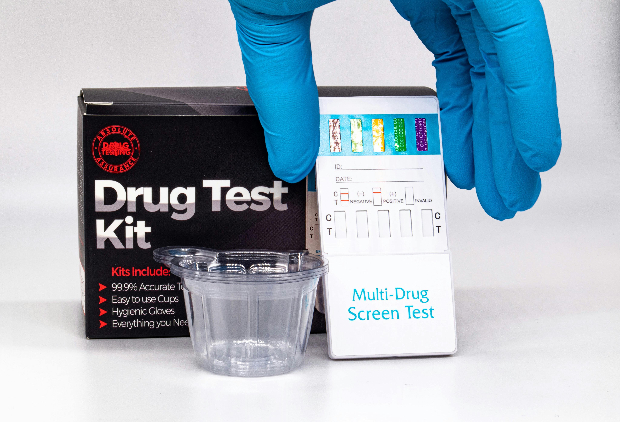What Role Does Drug Testing Play in Public Safety and Health: An Analytical Perspective

What Role Does Drug Testing Play in Public Safety and Health
Drug testing is important in promoting public safety and health, addressing various challenges in these areas. By identifying substance use in workplaces and communities, public safety is improved, and the risk of accidents and health issues is reduced. Drug testing kits, like those available at DrugTests.co.uk, help families and employers maintain a safe environment by detecting substances such as cannabis and opiates.
Communities facing the ongoing overdose crisis benefit from measures such as drug-checking programs, which aim to reduce harm by assessing the safety of substances. In particular, areas like British Columbia have implemented such initiatives to tackle the crisis. These efforts aim to save lives and improve community well-being by reducing the dangers associated with drug use.
Drug testing also plays a role in workplaces where safety is a priority. It is a preventive measure against potential accidents and guarantees high safety standards, especially in jobs requiring great care. While drug testing in the workplace can sometimes spark debate, it is widely regarded as a useful practice for maintaining health and safety standards across various sectors.
The Impact of Drug Testing on Public Safety
Drug testing plays a supportive role in improving public safety by reducing risks in high-stakes environments. It is a precaution in different sectors to maintain safety and reduce dangerous incidents.
Improving Workplace Safety
In work environments where safety is a priority, drug testing can help maintain a secure setting. Regular testing helps identify and manage potential risks posed by substance use among employees. Maintaining a substance-free workforce is important for industries such as construction, healthcare, or manufacturing, where impaired judgement could lead to accidents. Periodic testing not only deters drug use but also encourages employees to seek help if they face substance-related issues, promoting a healthier and safer workplace overall.
Prevention of Accidents in Transportation
Substance use in transportation can be particularly dangerous, potentially leading to severe accidents. Drug testing is often used to monitor the safety of drivers, pilots, and railway staff. This preventive measure helps identify individuals under the influence who might pose a danger to themselves and others. In England, testing measures have proven beneficial in decreasing traffic accidents and improving safety for passengers and workers. Implementing testing protocols before shifts or randomly guarantees adherence to safety standards, ultimately leading to more reliable and secure transport services.
Drug Testing in Law Enforcement
Law enforcement agencies utilise drug testing to uphold integrity and accountability within their ranks. Officers must remain clear-headed and unbiased when performing their duties. Testing helps identify issues early, guaranteeing officers can perform their roles without compromise. It also serves as a standard of professionalism, enabling trust between law enforcement and the community. Effective drug testing policies contribute to a safer environment and improved service delivery.
Drug Testing and Public Health
Drug testing plays a key role in promoting public health by evaluating the success of rehabilitation programmes, preventing substance misuse in healthcare settings, and addressing public health crises related to drugs. Each area helps manage and reduce substance use’s impact on individuals and communities.
Assessing the Effectiveness of Rehabilitation Programmes
Rehabilitation programmes aim to help individuals recover from substance misuse by offering treatment and support. Drug testing within these programmes helps monitor progress and treatment plan adherence.
Regular testing can track changes in a person’s substance use, offering insights into their recovery journey. It allows health professionals to adjust treatment plans based on verifiable data. Testing also encourages accountability, motivating individuals to stay committed to recovery goals.
Using drug testing data contributes to understanding which aspects of a programme work best, helping to improve future initiatives and offering better support for those in treatment.
Preventing Substance Abuse in Healthcare Settings
Healthcare settings are places where patient safety is important. Drug testing helps identify potential substance misuse among staff, which can affect the quality of care provided to patients. Healthcare facilities aim to maintain a safe and healthy environment by implementing random or routine testing.
Testing can deter drug use within these settings and promote professional responsibility. It also provides a mechanism for identifying individuals needing help, leading to timely interventions.
Policies mandating drug testing can reduce incidents of impaired judgement and decision-making, which can put patients at risk, improving overall safety in healthcare environments.
Addressing Drug-Related Public Health Crises
Public health crises involving drugs, like the opioid epidemic, highlight the importance of monitoring substance use in communities. Drug testing can provide data on prevalent substances, helping to shape responses to these crises.
Programmes like drug checking programmes enable users to test substances before using them, leading to safer outcomes by detecting dangerous additives or higher-than-expected potency. This initiative is a preventive measure to reduce overdoses and promote informed decisions.
Moreover, data collected from drug testing can guide public health campaigns and policy decisions, targeting specific drugs or patterns of misuse effectively and potentially saving lives.
Conclusion
Incorporating drug testing in workplaces can improve safety, particularly in roles where high safety standards are needed. Public safety is a significant concern, and conducting drug tests supports this by identifying and mitigating risks related to substance use.
Community drug checking offers the promise of reducing overdose rates. This approach allows individuals to test substances, avoiding potentially harmful or unknown ingredients. You can read more about this strategy in tackling the overdose crisis at BMC Public Health.
Creating supportive environments plays a role in effective harm-reduction strategies. Drug testing initiatives should focus on safety and supporting individuals rather than merely policing behaviour. Public health responses that include testing as an educational tool contribute positively to community well-being.
Guest Article.




